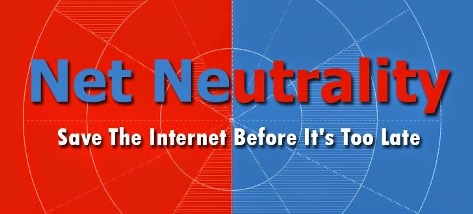
A government-appointed committee has veered around to the view that law should be put in place to explicitly prohibit mobile operators from offering differential tariffs for internet-based voice calls and data surfing as well as sponsored data such as Airtel Zero or Facebook’s Internet.org. Such offerings, the committee feels, go against the tenets of net neutrality. The view is sure to upset telcos that are losing out to over- the-top (OTT) players like WhatsApp and Skype that offer voice and messaging services. The committee is yet to submit its views to the department of telecommunications but has held several meetings.
The proposed law will clearly lay down when an operator can block sites or slow down speeds, which would be allowed only if it spots illegal content, spam, viruses and as part of traffic management during periods of congestion or emergency.
Sources familiar with the committee’s thinking told FE that it appreciated that telcos had made huge investments and also that voice services were a dominant business for them. However, it felt that the evolution of technology cannot be stopped. “Technology can be disruptive and operators have to adapt their business models or perish,” a source said.
Net neutrality means all end users are able to access content, applications and services of their choice at the same level of service quality, internet speed and price with no priority or degradation based on the type of content, applications or services.
Sources said the committee, which was earlier expected to submit its report by the second week of May, would now complete its work by the end of the month. However, a final decision on the report would be awaited by the government till the time the Telecom Regulatory Authority of India submits its report on the matter. Though the government has the final power to take a call on the matter of net neutrality as it is a policy issue, it wants to go by the set precedent that a Trai report be first submitted.
The Trai consultation process on whether to bring OTT operators like Facebook, WhatsApp or Skype, who basically provide free calling apps that use the voice over Internet protocol route, need to be brought under some kind of regulatory mechanism is under way but its report is likely to be delayed.
This is because chairman Rahul Khullar demitted office on Wednesday after completing his three-year term. Though technically Trai, which is run by the other two full-time members as well as part-time members, can go ahead and finish the exercise, pragmatism suggests that it waits till a new chairman takes charge.
Mobile operators and the OTT players have been locked in a major tussle on net neutrality since last December when Bharti Airtel came out with a differential tariff plan for VoIP calls and data surfing, under which VoIP calls were charged almost three times more than pure data surfing. However, after huge protests by netizens, the company rolled it back. The fight was restarted when in March Trai came out with a consultation paper to examine whether OTT players should be brought under some kind of a regulatory mechanism to create a level playing field. There was a no-holds-barred scrap when last month Bharti brought about what it called Airtel Zero plan wherein data charges are borne by the application provider rather than the consumers. While the company has not withdrawn this plan as it calls it an open and non-discriminatory platform, the brouhaha it created led to the country’s largest e-commerce player Flipkart desisting from joining it.
Proponents of OTT operations argue that if operators lose out on voice revenue they still earn data revenue through services like WhatsApp or Viber. However, the realisation for a mobile operator is not similar from voice calls and data services. For instance, a minute of voice usage on mobile phone makes an operator realise around 50 paise. In the case of a similar duration of VoIP call there’s a realisation of only 4 paise.
Mobile operators maintain that if they are not offered a level playing field with OTTs, their businesses would be viable only by raising data prices by up to six times. Such high rates, they say, would become unaffordable for a large number of people, denying them access to the internet. They have been urging for applying the principle of same service, same rules to bring voice calls and VoIP under the same regulatory regime.
Source: Financial Express


 Comment
Comment By Konnect Worldwide
By Konnect Worldwide